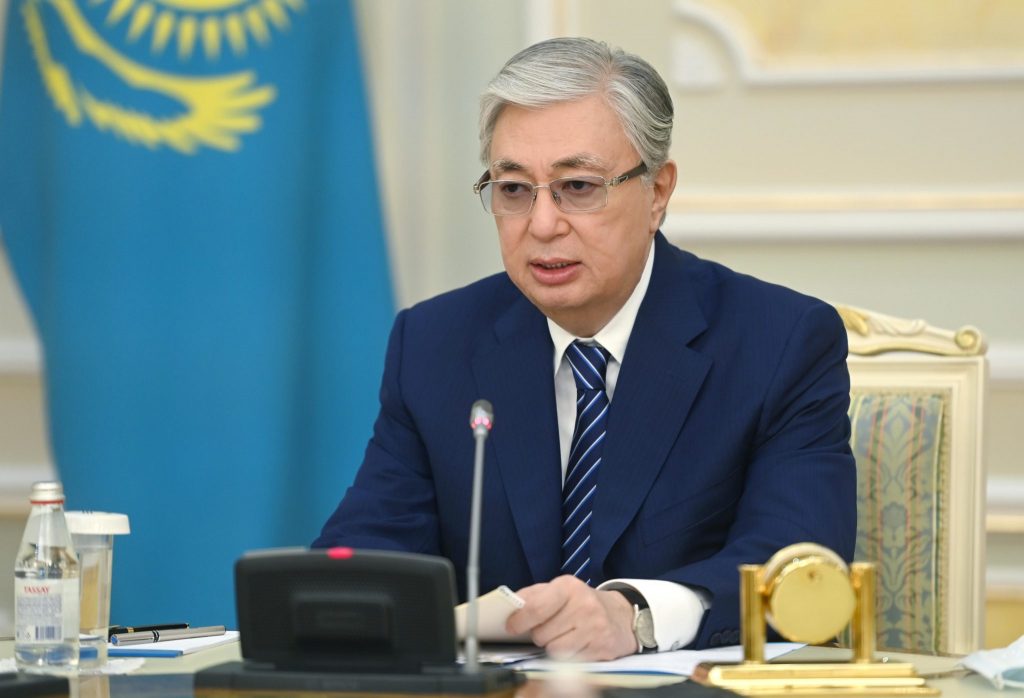
Kazakh President Kassym-Jomart Tokayev.
Kazakhstan President Kassym-Jomart Tokayev declared 2021 the “Year of the 30th Anniversary of Independence” while speaking at the fourth meeting of the National Council of Public Trust on October 22, 2020.
December 16, 1991, is a memorable date in Kazakhstan’s history. On that day, the Supreme Council of the Republic of Kazakhstan adopted a historical document – Constitutional Law No. 1008-XII “On the State Independence of the Republic of Kazakhstan”. Now this date is celebrated as the main state holiday – Independence Day of the Republic of Kazakhstan.
Kazakhstan’s acquisition of state sovereignty dates back to the adoption by the Supreme Soviet of the Kazakh SSR on April 24, 1990, of the Law “On the Establishment of the Post of President of the Kazakh SSR and Amendments and Additions to the Constitution of the Kazakh SSR”.
The introduction of the institution of presidential power was the first serious step of Kazakhstan as a union republic within the Soviet Union towards real sovereignty.
On the same day, the Supreme Council elected Nursultan Abishevich Nazarbayev, at that time the First Secretary of the Central Committee of the Communist Party of the Kazakh SSR, to the post of President of the Kazakh SSR on an uncontested basis.

One of the first steps of Mr Nazarbayev (above) as Head of state was the development of the Declaration “On State Sovereignty of the Kazakh SSR”.
Mr Nazarbayev took an active part in the article-by-article consideration of the draft Declaration. The drafting of the document, which was the precursor to the formalization of Kazakhstan’s full state independence, took place in the context of the economic and political chaos that prevailed in the Soviet empire.
As is well known, the leadership of the Supreme Soviet of the USSR strongly hindered the adoption of the Declaration “On State Sovereignty” by Kazakhstan, so the development of this fateful political and legal document for the people of Kazakhstan became an act of civil courage.

On October 25, 1990, the Supreme Council of the Kazakh SSR of the XII convocation adopted the Declaration “On State Sovereignty of the Kazakh Soviet Socialist Republic”, which was the first step of Kazakhstan on the path to independent development.
The Declaration “On the State Sovereignty of the Kazakh SSR” of October 25, 1990, and the Constitutional Law “On the State Independence of the Republic of Kazakhstan” of December 16, 1991, being the fundamental legislative acts on the way to formalizing the state independence of Kazakhstan, laid the constitutional and legal foundation of a new sovereign state – the Republic of Kazakhstan.
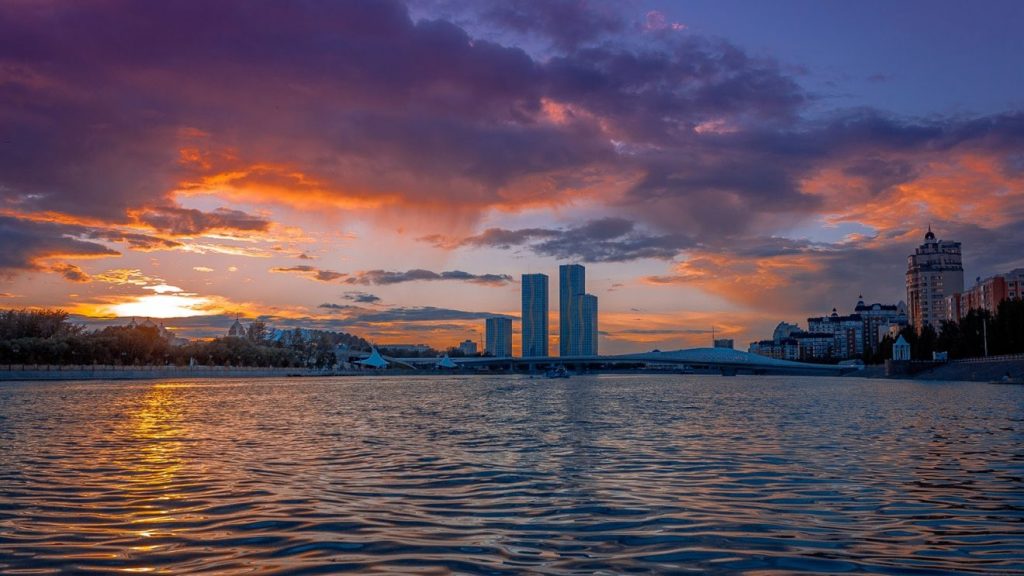
The modern national history, which is three decades of independence, formation and strengthening of the national sovereignty and statehood of Kazakhstan, is inextricably linked with the name of the First President of Kazakhstan – Mr Nazarbayev.
The path to true Independence was difficult and thorny. As Mr Nazarbayev himself emphasized, “over these years, Kazakhstan had a bumpy ride, which took centuries for other states.”
In a historically short period of time, the people of Kazakhstan under the leadership of the First President of of Kazakhstan has made tremendous progress in all spheres of activity – the transition from a planned to a market economy, improving living standards of the population, the formation of a legal and democratic state, the movement to create the welfare state, further strengthening the state sovereignty, security and stability, deepening state-building.
The formation of Kazakhstan as an independent state with a market economy was due to a radical change in the way of life, thinking and actions. The policy of Mr Nazarbayev was aimed at the development of the country according to the fundamental principle “economy first, then politics”.
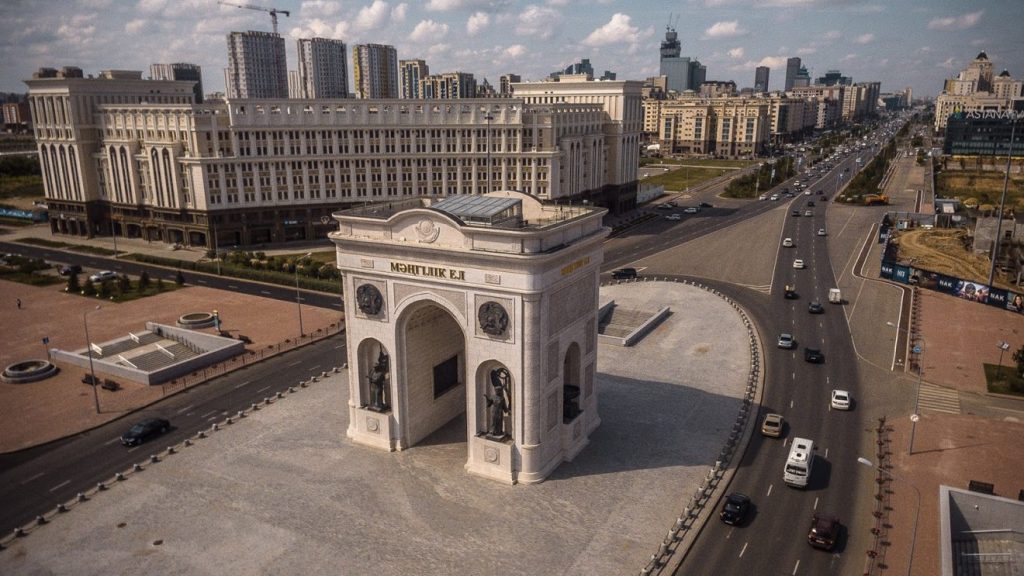
Three decades of Independence have become an era of economic progress and sustainable development for Kazakhstan. Kazakhstan has become a leader in the implementation of the most successful and large-scale market reforms in the post-Soviet space. The European Union and the United States recognized Kazakhstan as the first post-Soviet state with a market economy.
Over the years of independence, $350 billion of foreign direct investment has been attracted to Kazakhstan, which is 70% of the total investment inflow to the Central Asian region. This was the result of the success of the policy of openness and trust pursued by the leadership of the state, supported by stability and harmony in the Kazakhstan society.
Over the decades of independence, the volume of GDP has grown 18 times, more than 300 thousand jobs and 1250 new industrial enterprises have been created. In 2006, according to the World Bank, Kazakhstan joined the group of upper-middle-income countries.
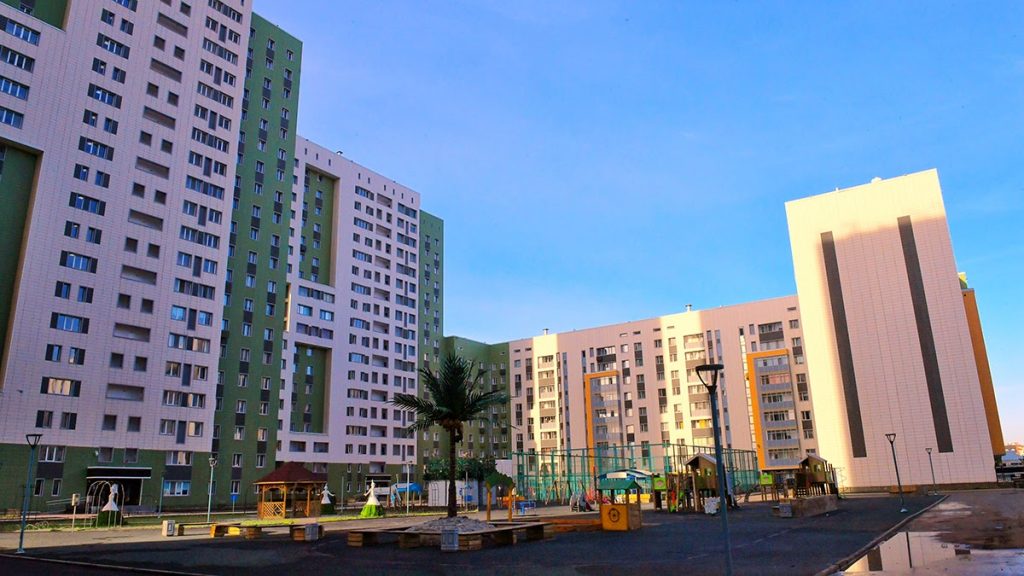
In 2012, Kazakhstan was among the 50 most competitive economies in the world. On November 30, 2015, Kazakhstan became a full member of the World Trade Organization. Kazakhstan exports more than 2,500 items of goods to more than 100 countries around the world
Kazakhstan is one of the CIS leaders in socio-economic transformation. Success in economic development contributed to the growth of the welfare of the population of the republic.
Since 1991, the average salary of Kazakh citizens has increased 17 times and the pension has increased 10 times. Since 1991, the population of Kazakhstan has increased from 16,793,000 to approximately 18,953,799 by the end of 2020. The birth rate in Kazakhstan has increased by 60%. The average life expectancy of Kazakhstanis has increased from 64 years to 72 years.
Three cities – Nur-Sultan, Almaty and Shymkent – received the status of cities with more than 1 million inhabitants. More than 100 million square meters of housing were commissioned and 1,500 schools and more than 2,700 kindergartens and hundreds of colleges were built.
The consistent policy of Mr Nazarbayev in the national question ensured national unity based on the country’s economic success and the establishment of the principles of equality of peoples.
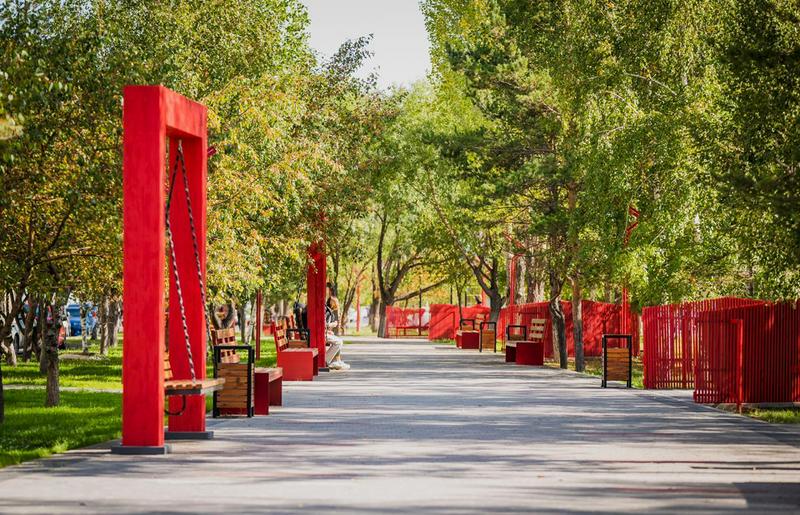
The construction of a single nation, the Kazakh people, began. The First President of Kazakhstan put forward the idea of creating the Assembly of Peoples of Kazakhstan (APK). In the republic, equal opportunities were created for all citizens of the country, regardless of nationality and religion. Social peace was preserved, interethnic and interfaith harmony developed.
Currently, the uniqueness of the Assembly of People of Kazakhstan is recognized all over the world, the Assembly has become an international brand of Kazakhstan and serves as a link between civil society and the state.
The activities of the Assembly and the Congresses of Leaders of World and Traditional Religions, regularly held in Nur-Sultan since 2003, have contributed to the growth of the international authority of the Republic of Kazakhstan as a country that effectively solves the problems of interethnic relations.
UN Secretary General Kofi Annan during his visit to Kazakhstan called the ANC an example of interethnic harmony, stable, sustainable development for other states of the world. Pope John Paul II, who visited Kazakhstan in 2001, spoke highly of the Kazakhstan people.
Nur-Sultan, the capital of an independent state, has become a unique project of Mr Nazarbayev, a successful symbol of independent Kazakhstan, a national brand and a standard of the country.

Nur-Sultan is the northernmost capital in Asia. In 1999, by the decision of UNESCO, the city was awarded the title “City of Peace”. Since 2000, the main city of Kazakhstan has been a member of the International Assembly of Capitals and Cities.
The real improvement of the situation in all spheres of life of the Kazakhstani society contributed to the active growth of the country’s international prestige.
Over the period of independence, Kazakhstan has become a strategically important player in the world arena and an undisputed leader in the Central Asian region.
Kazakhstan’s renunciation, at the dawn of Independence, of the world’s fourth-largest nuclear-weapon stockpile, contributed to confidence-building on the part of the world’s major powers and ensured the goodwill of the international community towards a young state and contributed to the transformation of the Republic of Kazakhstan into one of the leaders of the global anti-nuclear movement.
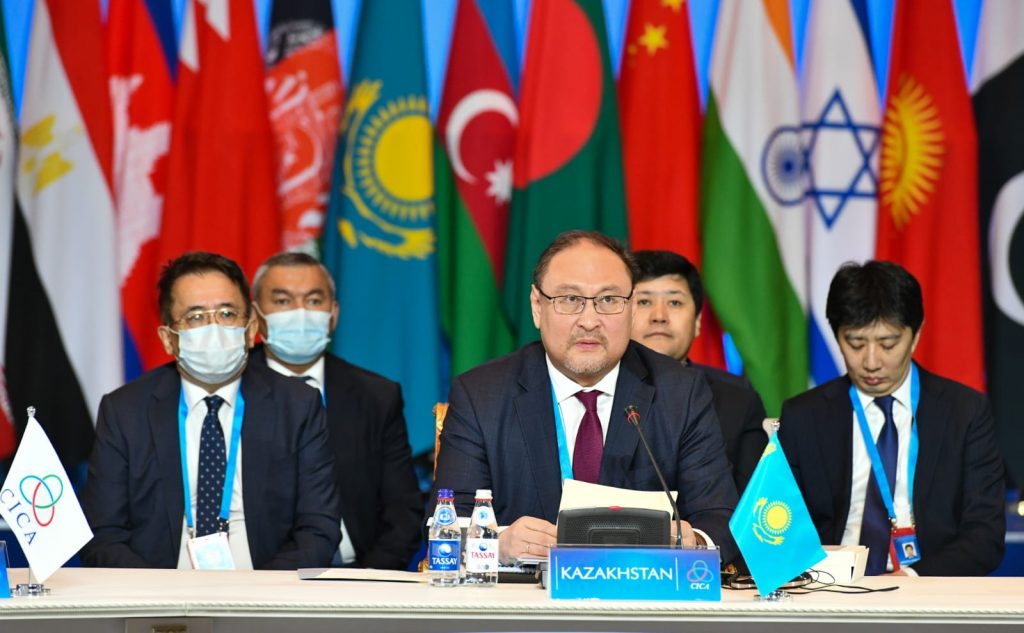
In 2015, at the initiative of Kazakhstan, the UN General Assembly adopted the Nuclear-Weapons-Free World Declaration.
Kazakhstan develops a multilateral and peaceful foreign policy and has established diplomatic relations with 183 countries of the world.
It is a member of and is deepening its cooperation with key intergovernmental organizations established by the international community to achieve common goals in the political, economic, social, scientific, technical and cultural fields such as the UN, OSCE, World Trade Organization, Organization of Islamic Cooperation, CIS, SCO, EEU, CSTO.

Kazakhstan, thanks to the active foreign policy activities and international initiatives of Mr Nazarbayev, played a key role in the creation of such organizations as the Eurasian Economic Union, the CSTO, the SCO and the Turkic Council. Kazakhstan was the first among the CIS countries to host the OSCE Summit and the World EXPO.
Thirty years of Independence have become an era of progress and sustainable development for Kazakhstan.
As Mr Tokayev noted: “Independence serves as a strong pillar of Kazakhstan’s statehood. For Kazakhstan, a country with a rich history and deep roots, there is no greater value. It is the most precious treasure, the most precious possession. That is why we value the Independence that our ancestors dreamed of. Sovereignty is an invaluable asset that not every nation possesses. The chronicle of our Independence is closely linked with the historical figure of the First President – Elbasy”.
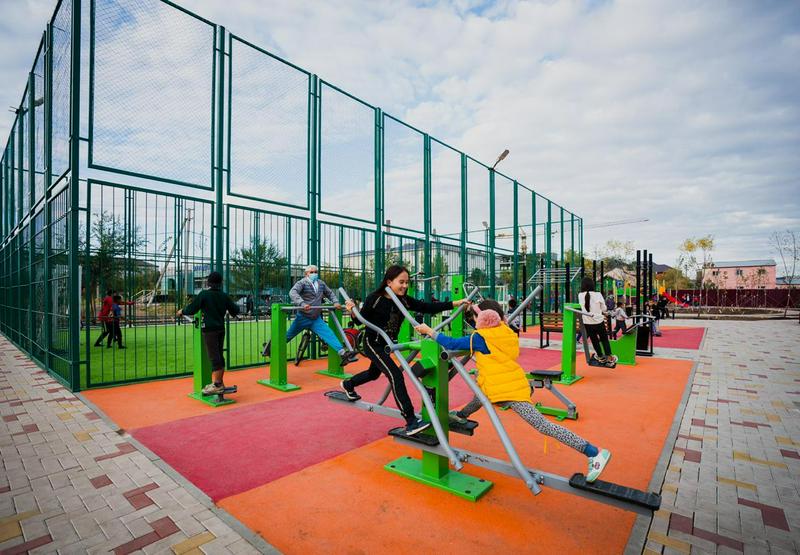
2021 promises to be a historic and milestone year. Kazakhstan is entering a new period of 10-year development. Much has been planned for the coming years. The acquisition of independence was a significant event in the history of Kazakhstan, which marked the beginning of the creation of a new democratic state, a new society.
For Kazakhstan, as for any country in the world, independence has become a solid pillar of statehood and has formed a reliable basis for sovereignty.












